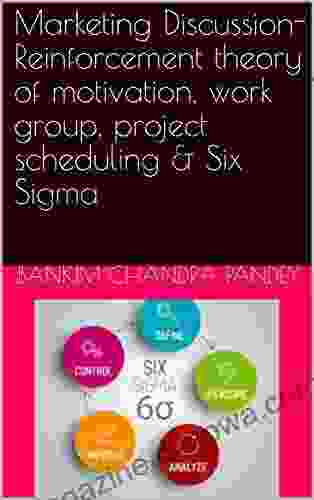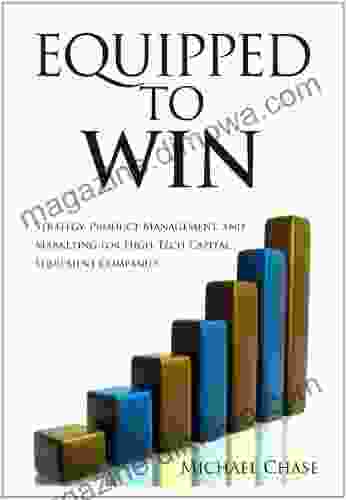Marketing Discussion Reinforcement Theory Of Motivation Work Group Project

Unleashing the Power of Motivation in Work Groups
Motivation is the driving force behind human behavior and performance. In the dynamic world of work, understanding and harnessing the power of motivation is crucial for organizations that seek to achieve exceptional results. The Reinforcement Theory of Motivation offers a compelling framework for understanding and influencing motivation within work groups, paving the way for increased productivity, engagement, and organizational success.
5 out of 5
| Language | : | English |
| File size | : | 1004 KB |
| Text-to-Speech | : | Enabled |
| Screen Reader | : | Supported |
| Enhanced typesetting | : | Enabled |
| Word Wise | : | Enabled |
| Print length | : | 12 pages |
| Hardcover | : | 104 pages |
| Item Weight | : | 12 ounces |
| Dimensions | : | 6.5 x 0.75 x 8.75 inches |
Reinforcement Theory: A Foundation for Understanding Motivation
The Reinforcement Theory of Motivation, developed by B.F. Skinner, suggests that individuals are motivated to engage in behaviors that are rewarded or reinforced. Conversely, they are less likely to repeat behaviors that are punished or not reinforced. This theory emphasizes the role of external consequences in shaping and maintaining behavior.
In the workplace, managers can effectively apply the Reinforcement Theory by providing positive reinforcement for desirable behaviors and addressing undesirable behaviors through appropriate consequences.
Practical Strategies for Implementing Reinforcement Theory
To successfully implement the Reinforcement Theory in work groups, managers should focus on:
1. Identifying and Defining Desired Behaviors: Clearly outlining the specific behaviors that contribute to group and organizational goals. 2. Establishing a Reinforcement System: Developing a system for providing positive reinforcement to individuals or groups that exhibit desired behaviors. 3. Consistency and Timeliness of Reinforcement: Ensuring that reinforcement is provided consistently and in a timely manner to strengthen the association between behavior and reward. 4. Addressing Undesirable Behaviors: Using appropriate consequences to discourage undesirable behaviors while emphasizing positive reinforcement for desired behaviors.
Case Studies: Witnessing the Impact of Reinforcement Theory
Numerous organizations have successfully implemented the Reinforcement Theory of Motivation in work groups, leading to remarkable improvements in productivity, engagement, and overall performance.
Case Study 1: A manufacturing company implemented a reinforcement system that rewarded employees for meeting production targets. The result was a significant increase in output and reduced production costs.
Case Study 2: A software development team introduced a peer recognition program that acknowledged and rewarded team members for collaborative and innovative contributions. This resulted in enhanced teamwork, increased motivation, and improved project outcomes.
Benefits of Embracing Reinforcement Theory
Organizations that effectively utilize the Reinforcement Theory of Motivation in work groups reap numerous benefits, including:
- Increased Productivity: Enhanced employee motivation leads to higher levels of productivity and efficiency.
- Improved Employee Engagement: Employees feel valued and appreciated when their efforts are recognized, leading to increased engagement and job satisfaction.
- Reduced Absenteeism and Turnover: A positive and motivating work environment reduces absenteeism and turnover, contributing to organizational stability and cost savings.
- Enhanced Collaboration: Reinforcement theory encourages cooperation and teamwork, fostering a collaborative work environment that drives innovation and success.
Empowering Your Work Groups: The Reinforcement Theory Advantage
The Reinforcement Theory of Motivation provides organizations with a powerful tool to enhance motivation, productivity, and overall work group performance. By understanding and implementing this theory, managers can create a work environment that fosters positive behaviors, rewards effort, and drives exceptional results. Embrace the Reinforcement Theory and empower your work groups to reach their full potential, achieving organizational success and employee fulfillment.
5 out of 5
| Language | : | English |
| File size | : | 1004 KB |
| Text-to-Speech | : | Enabled |
| Screen Reader | : | Supported |
| Enhanced typesetting | : | Enabled |
| Word Wise | : | Enabled |
| Print length | : | 12 pages |
| Hardcover | : | 104 pages |
| Item Weight | : | 12 ounces |
| Dimensions | : | 6.5 x 0.75 x 8.75 inches |
Do you want to contribute by writing guest posts on this blog?
Please contact us and send us a resume of previous articles that you have written.
 Book
Book Novel
Novel Page
Page Chapter
Chapter Text
Text Story
Story Genre
Genre Reader
Reader Library
Library Paperback
Paperback E-book
E-book Magazine
Magazine Newspaper
Newspaper Paragraph
Paragraph Sentence
Sentence Bookmark
Bookmark Shelf
Shelf Glossary
Glossary Bibliography
Bibliography Foreword
Foreword Preface
Preface Synopsis
Synopsis Annotation
Annotation Footnote
Footnote Manuscript
Manuscript Scroll
Scroll Codex
Codex Tome
Tome Bestseller
Bestseller Classics
Classics Library card
Library card Narrative
Narrative Biography
Biography Autobiography
Autobiography Memoir
Memoir Reference
Reference Encyclopedia
Encyclopedia John Cooper
John Cooper Jim Benton
Jim Benton Joe L Wheeler
Joe L Wheeler Marc Martin
Marc Martin Justin Gage
Justin Gage Suzanne Rothenberger
Suzanne Rothenberger Jim Rutter
Jim Rutter John Sayle Watterson
John Sayle Watterson Mike Atherton
Mike Atherton K R Harrison
K R Harrison Swati Gupta
Swati Gupta Joanne Owen
Joanne Owen Joachim Rossberg
Joachim Rossberg Johanne Lavoie
Johanne Lavoie Mark Cohen
Mark Cohen Joe Egan
Joe Egan John Layfield
John Layfield John Griffin
John Griffin Stephanie Sammartino Mcpherson
Stephanie Sammartino Mcpherson Maralyn Rittenour
Maralyn Rittenour
Light bulbAdvertise smarter! Our strategic ad space ensures maximum exposure. Reserve your spot today!

 Fletcher MitchellUncover the Cryptic Realm: "Insectopedia - The Secret World of Southern...
Fletcher MitchellUncover the Cryptic Realm: "Insectopedia - The Secret World of Southern... Chinua AchebeFollow ·6.7k
Chinua AchebeFollow ·6.7k Thomas PowellFollow ·9k
Thomas PowellFollow ·9k Lee SimmonsFollow ·6k
Lee SimmonsFollow ·6k Nathan ReedFollow ·9.6k
Nathan ReedFollow ·9.6k Maurice ParkerFollow ·17.8k
Maurice ParkerFollow ·17.8k Darius CoxFollow ·4.8k
Darius CoxFollow ·4.8k Orson Scott CardFollow ·10.3k
Orson Scott CardFollow ·10.3k Mitch FosterFollow ·11.7k
Mitch FosterFollow ·11.7k

 Joshua Reed
Joshua ReedTake Your Marketing Business Into The Next Level
Are you ready to...

 Aaron Brooks
Aaron BrooksFrom Fourier to Cauchy-Riemann: Geometry Cornerstones
From Fourier to Cauchy-Riemann: Geometry...

 Orson Scott Card
Orson Scott CardUnveiling the Art of Mitigation Banking: A Comprehensive...
In the intricate dance between...

 Victor Hugo
Victor HugoUnleash Your Creativity: A Journey Through the Enchanting...
Prepare to be captivated as we...

 Duncan Cox
Duncan CoxLoad of Bull: An Englishman's Adventures in Madrid
By Simon Bunce ...
5 out of 5
| Language | : | English |
| File size | : | 1004 KB |
| Text-to-Speech | : | Enabled |
| Screen Reader | : | Supported |
| Enhanced typesetting | : | Enabled |
| Word Wise | : | Enabled |
| Print length | : | 12 pages |
| Hardcover | : | 104 pages |
| Item Weight | : | 12 ounces |
| Dimensions | : | 6.5 x 0.75 x 8.75 inches |












